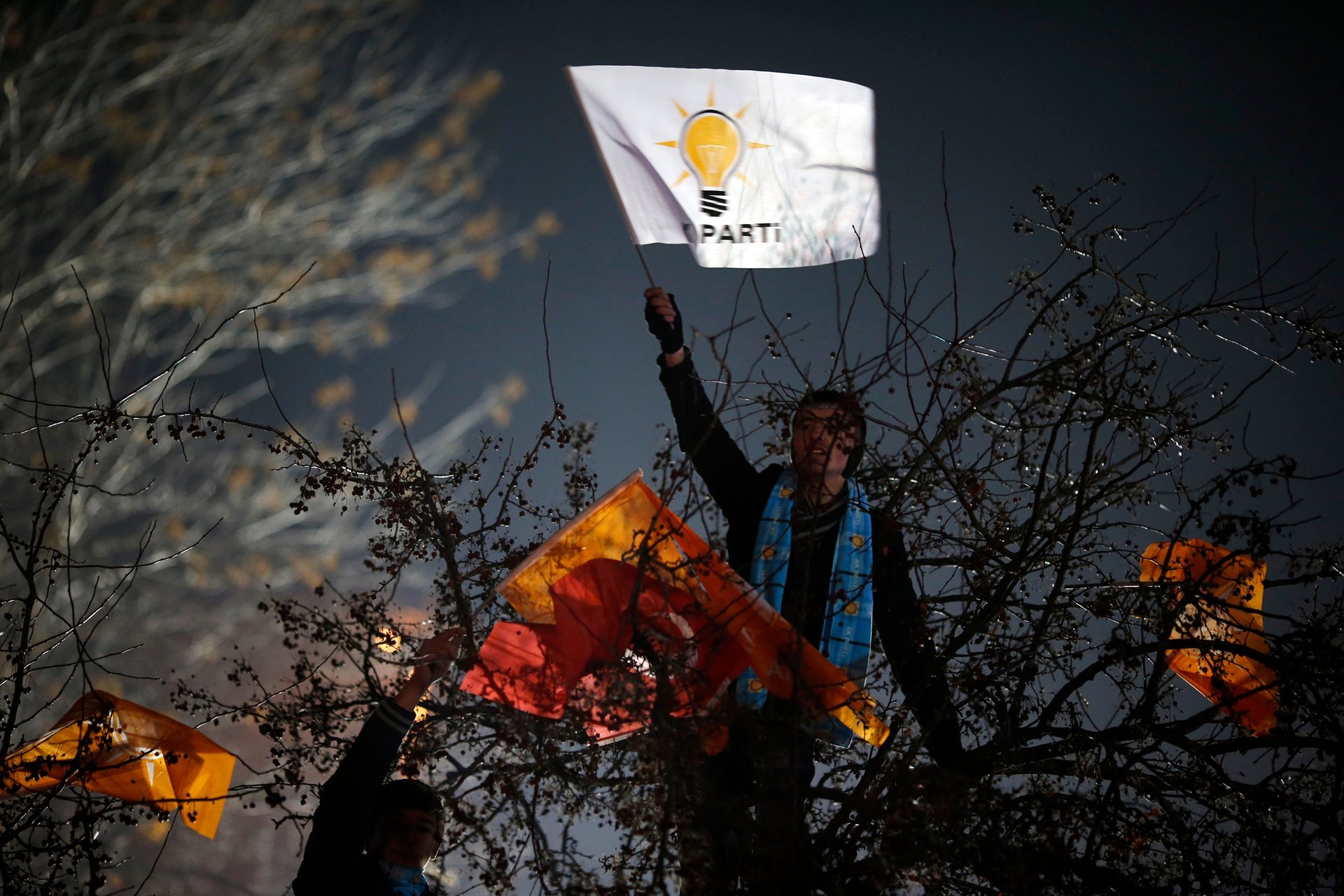The two big men behind the huge corruption row in Turkey
The best way to understand Turkey’s growing chaos is as a political fight-to-the-death between the nation’s two colossal personalities.


The best way to understand Turkey’s growing chaos is as a political fight-to-the-death between the nation’s two colossal personalities.
On one side is Prime Minister Recep Tayyip Erdogan, who a couple of years ago declared himself Turkey’s “masterful” leader (paywall), the paramount ruler who would reconstruct the country along lines that he saw fit. Recently, his ambitions have been challenged by former collaborator Fethullah Gulen, a Pennsylvania-based Islamic preacher with millions of followers and institutions and businesses worth tens of billions of dollars. (Two of the most thoughtful examinations of Gulenism are by Claire Berlinsky at The City and Suzy Hansen at the New Republic.). The fallout appears to be based in mutual distrust of the messianic confidence in which each holds his own judgment: both want to run the country but there is room for only one.
The means of battle is a corruption investigation that has implicated Erdogan and other senior government officials. Another official resigned from the ruling party today—former Culture Minister Ertugrul Gunay—following three others who quit the government itself earlier this week. This is big: Politicians resign around the world every day, but not in Turkey. See this tweet yesterday by the Wall Street Journal’s Istanbul bureau chief.

It gets bigger. When political leaders start to fire the folks investigating them, smart observers start to perceive a funereal air. Muammar Akkas, the prosecutor leading the graft investigation, announced yesterday that he had been sacked. On that, here is Strobe Talbott, the former US deputy secretary of state and now head of the Brookings Institution.

For the outside world, at stake are a couple of serious geopolitical questions. One initiative that seems certain to lose traction is Turkish activism on the Kurdish front both at home and in Iraq: Talks will stall with Turkey’s minority Kurdistan Workers Party (PKK) as Erdogan’s attention turns to his own survival, and an internally divided Turkey could be less prepared to challenge Baghdad on behalf of Iraqi Kurdistan’s ambitions to be an independent oil player. To the degree that Erdogan is weakened, however, an effort that may gain momentum is a proposed natural gas pipeline from Israel to Turkey—Gulen has been critical of Erdogan’s acrimony with Israel and favors tighter relations with the country.
Bill Park, an expert on Turkey at Kings College, London, told Quartz that the brinksmanship could go on for some time.
“Expect dirty deeds—Gulen himself has already spoken of his awareness of prostitution use by senior [ruling party] figures; there will be corruption allegations galore, perhaps some juicy YouTube videos, etc,” Park said in an email. “These people spy on each other, and all penetrate the state apparatus.”
Markets are alarmed and are starting to expect early parliamentary elections, currently scheduled in June 2015. In a report, Naz Masraff, an analyst with the Eurasia Group, says Erdogan does not himself face a mortal political threat. He will probably still run for president this coming August. Masraff does agree that Erdogan may move the elections forward, and also may abolish his party’s self-imposed three-term parliamentary limit, which would allow his damaged allies to run again.
Andrew Finkel, author of Turkey: What Everyone Needs to Know, says the clash is too easily cast as a two-man row. Instead, he argues, honest forces within the ruling party have finally stood up to do what is right. Finkel may be correct about the motives of prosecutor Zekeriya Oz, who initiated both a slew of 2007 cases against Turkish generals that solidified Erdogan’s power and the current spate of corruption cases. But the latest investigation could not have transformed into such a political crisis absent the personal clash.